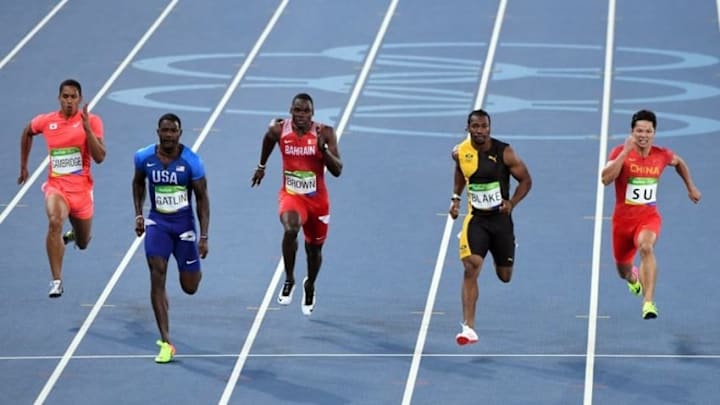To paraphrase Inigo Montoya, I do not think it means what track thinks it means.
Most sports fans know when any competition gets to the semifinals, it means four teams or athletes are left. No matter the sport, you’ve got two games remaining to crown a champion — or races, or fights, or whatever the case might be.
In track, not so much. As viewers of the 2016 Rio Olympics have noted, quite a few of the sprints have semifinals that don’t really fit the definition of semifinals as we know them.
Because there are more than two of them, mostly.
So far, all of the sprints and middle distance events, including the 100m, 200m, 400m and 800m have had three semifinals. We asked our FanSided correspondent in Rio to get to the bottom of this situation, but last we heard from him, he was busy playing pickup beach soccer with supermodels on Copacabana Beach.
(Note: No part of that is true.)
The issue seems to be how the track heats are structured. For instance, in the first round of the men’s 100m, there were eight heats with up to nine runners per heat (some only had eight). That’s a maximum of 72 runners.
Two runners from each of the first round races automatically advanced to the semifinals. However, the next eight racers who finished third or worse in their race but had fast times also got to advance.
The semifinals had eight runners apiece, so just taking two from each first round heat would have given us two semifinals, and the universe would have remained in its proper order. So why not just do that?
It’s likely because the cut from 72 to 16 would be too severe, and would penalize runners who deserve to advance but have the misfortune of ending up in a particularly fast first round race. And the numbers simply don’t work out correctly any other way unless you decreased the number of initial qualifiers or added another round of races, and neither of those seem like good solutions.
So we’ll just have to put up with semifinals that distort the meaning of the term. Track, we love you every four years, but you’re weird.
